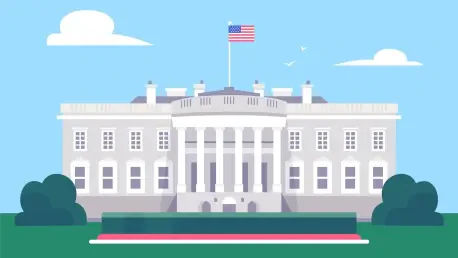In today’s political climate, navigating the complex web of legislative processes is more challenging than ever. To shed light on the recent developments in Congress, we have Donald Gainsborough, a seasoned political expert and leader at Government Curated. With his vast experience in policy and legislation, he’s here to provide insights into why House Republican leaders have postponed a crucial vote and to delve into the broader implications.
Could you explain why the House Republican leaders decided to delay the vote on the bill?
The leaders faced a strategic impasse. They realized they didn’t have the necessary support to pass the procedural hurdle required to advance the bill. The delay was a tactical move, allowing them to regroup and secure more votes before pushing forward with the debate.
What specific procedural hurdle are lawmakers trying to overcome, and why is it significant?
The procedural hurdle in question is the vote on the rule that sets the debate parameters. It’s significant because it determines whether the bill can be debated on the floor. Without passing this rule, the entire legislative process grinds to a halt.
How have hard-line Republicans, especially members of the House Freedom Caucus, influenced the delay?
Members of the House Freedom Caucus have been pivotal. Their firm stance against the current bill forced leaders to reconsider the timing of the vote. These lawmakers hold substantial sway within the GOP, and their opposition meant the leadership couldn’t risk proceeding without addressing their concerns.
What are the key objections raised by members of the House Freedom Caucus against the current form of the bill?
The primary objections centered on fiscal responsibility. Many in the Freedom Caucus were dissatisfied with the Senate’s legislation, believing it failed to adhere to a spending agreement. They were particularly concerned about the bill’s deficit impact and demanded changes as a precondition for their support.
How are travel issues affecting the attendance of some Republican members at the Capitol?
Weather conditions have wreaked havoc on travel plans across the country, leading to absences among some GOP members. These unexpected delays have resulted in key participants being unable to vote, which complicated matters further for the leadership.
How confident is House Majority Leader Steve Scalise about securing the needed votes once the absent members return?
Steve Scalise appeared optimistic. He indicated that once all members arrived, the votes needed to push the rule forward would materialize. His confidence seemed to hinge on the return of these lawmakers and the subsequent rallying of support.
Why is the Senate’s absence a point of contention among some House Republicans?
A sentiment of frustration brewed among House Republicans due to the Senate’s recess. They felt that the legislative process should remain uninterrupted until a resolution was reached, echoing the president’s request for continued efforts to resolve the issue.
What are the “three-point plan” demands proposed by Ralph Norman and the Freedom Caucus?
Ralph Norman mentioned that the Freedom Caucus had composed a “three-point plan” outlining their terms for supporting the bill. While specifics were not entirely disclosed, it was clear that the plan involved amendments to align the bill more closely with their objectives.
How has the opposition to the bill changed after the meeting with the President at the White House?
The White House meeting appears to have softened some opposition. Ralph Norman and other holdouts found answers to many of their queries, receiving vital new information that reassured them about the bill’s prospects.
What specific concerns have moderates expressed regarding Medicaid cuts and the rollback of green energy tax credits?
Moderate Republicans are worried about the real-world implications of Medicaid cuts and the rollback of green energy tax credits. They fear these measures might adversely affect their constituents, who rely on these programs and incentives for healthcare and economic sustainability.
How do you think the concerns of both hard-line Republicans and moderates will be addressed to achieve consensus?
Reconciliation will likely require a balanced approach, incorporating fiscal responsibility with sensitivity to social programs. Leaders must negotiate changes that can satisfy the fiscal hawks without alienating moderates who have district-specific concerns.
Why do GOP leaders believe this vote is critical for advancing the bill?
This vote is seen as a linchpin in the legislative process. Securing it ensures that the bill can move forward to full debate and eventual passage. For GOP leaders, overcoming this hurdle means maintaining legislative momentum.
Was any new information brought to light during the White House meeting that could impact support for the bill? If so, what was it?
The White House meeting was instrumental in clarifying several aspects of the bill that previously lacked transparency. Details remain scarce, but the new information addressed critical sticking points, potentially swaying undecided or opposition members.
What is your forecast for the outcome of this legislative process?
Navigating the current political terrain requires agility. I foresee that if leadership can effectively bridge gaps between different Republican factions, the bill has a reasonable chance of passing. However, achieving this will necessitate careful concessions and strategic alignments.









